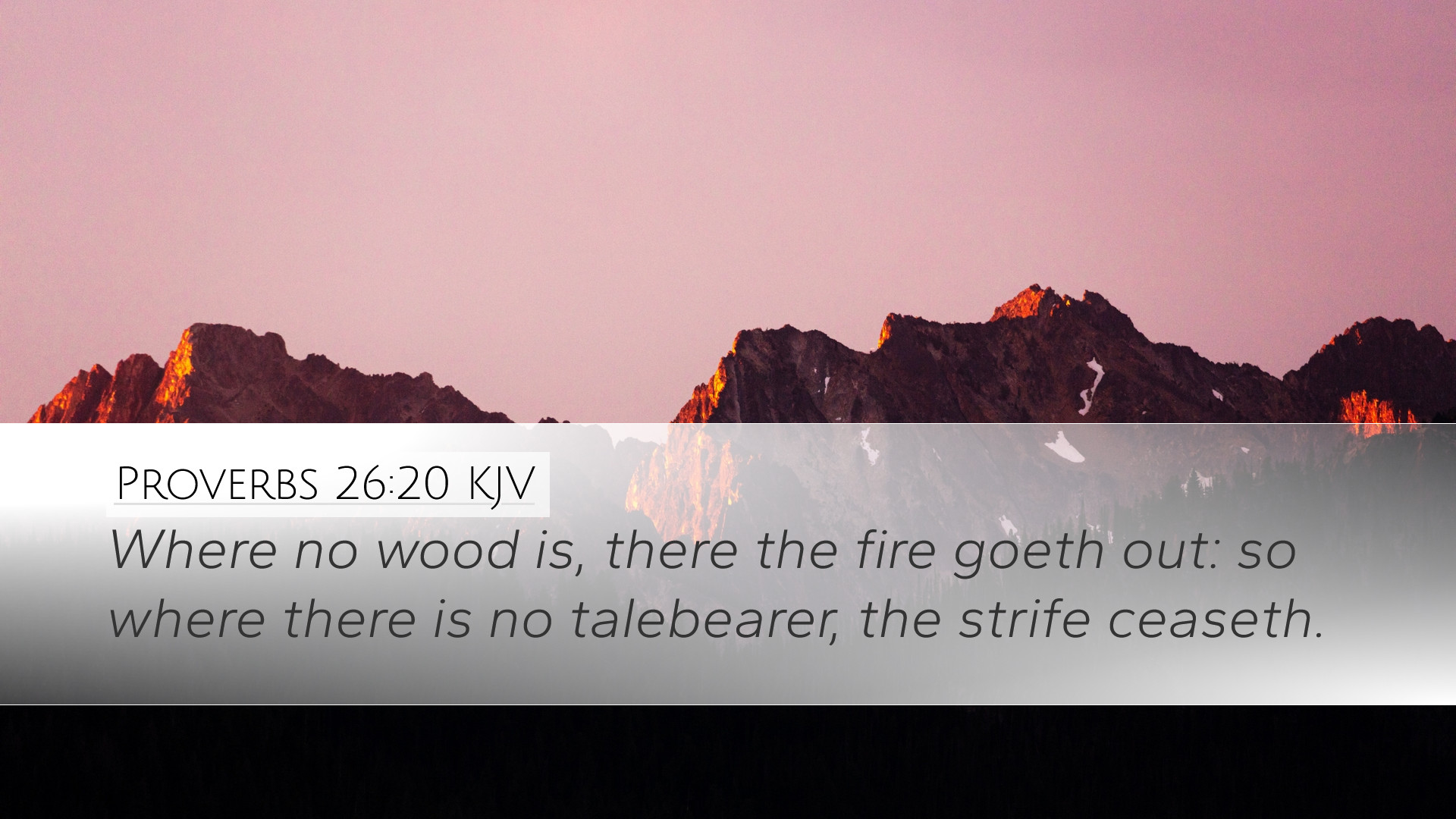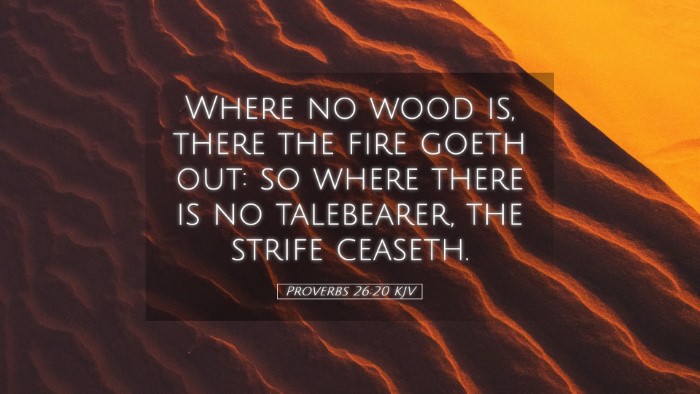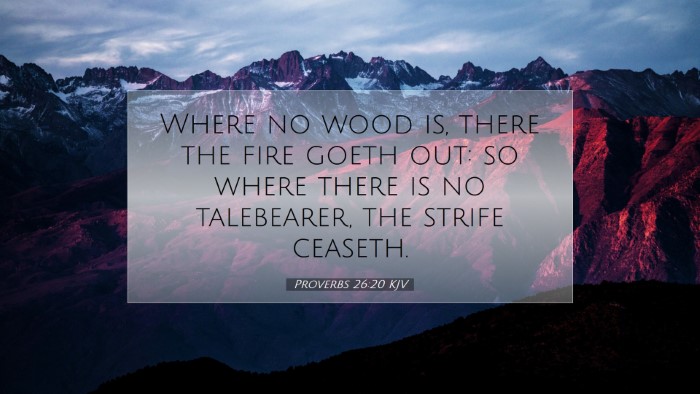Commentary on Proverbs 26:20
Verse: "Where no wood is, there the fire goes out: so where there is no talebearer, the strife ceaseth."
Introduction
The book of Proverbs is replete with wisdom and practical applications for everyday life. In Proverbs 26:20, the comparison between the cessation of fire when there is no wood and the stopping of strife when there is no talebearer offers vital insights into human behavior and the nature of relationships. This verse encapsulates the profound truth about gossip and conflict resolution.
Exegesis and Interpretation
Understanding this verse requires an examination of its components. The metaphor employed indicates that, just as wood is necessary to maintain a fire, the "talebearer" or gossip, fuels disputes among people. Thus, if gossip is absent, the conflicts that arise from it will also diminish.
Historical Context
Solomon, traditionally credited with the authorship of Proverbs, wrote these sayings for the purpose of imparting wisdom and guidance on how to live righteously. The society of Israel was not devoid of strife and internal conflicts, much like any community today. The admonition against gossip serves to remind the audience of the destructive nature of words and the importance of maintaining peace.
Matthew Henry's Insights
Henry notes that the absence of a talebearer is akin to the absence of fuel for a fire, emphasizing that the ignition of conflict often lies in the act of bearing tales or spreading falsehoods. He suggests that the resolution of disputes often requires the cessation of gossip, indicating that much conflict in relationships stem from misunderstandings perpetuated by unverified information.
Albert Barnes' Thoughts
Barnes highlights the simplicity yet power of this verse, illustrating how harmonious relationships can flourish when individuals choose silence over running their mouths. He draws attention to the need for individuals to take personal responsibility for their words, lest they contribute to the fires of conflict in their communities. This matches the Christian call to peace and unity within the body of Christ.
Adam Clarke's Commentary
Clarke elaborates on the metaphor, stating that just as fire cannot sustain itself without fuel, relational discord cannot thrive where there is discretion and integrity. He emphasizes the importance of controlling one’s tongue, as it is a primary source of strife. Clarke posits that true wisdom involves the discernment to speak only that which is constructive and beneficial, ultimately fostering peace.
Theological Implications
In a deeper theological sense, this verse echoes the teachings of Jesus regarding the importance of reconciliation. Matthew 5:9 states, "Blessed are the peacemakers: for they shall be called the children of God." The principle underlying Proverbs 26:20 aligns with the New Testament call to mend relational rifts and pursue peace, highlighting a consistent scriptural theme that values community and harmony.
Practical Applications
1. Encourage Silence Over Gossip
Pastors and leaders should promote environments where silence can replace gossip. Encourage congregants to reflect before speaking and to consider whether their words build up or tear down.
2. Foster Open Communication
Establish channels for open and honest communication to prevent misinterpretations and rumors from taking root. This encourages healthy dialogue that can preempt conflict.
3. Teach the Value of Discretion
Teach about the weight of words and nurture discernment among students and congregants. This will help individuals weigh their words carefully before allowing them to take flight.
Conclusion
Proverbs 26:20 serves as a timeless reminder of the need for discretion and the profound implications of our communication on relational dynamics. The imagery employed in this verse resonates with its readers, challenging them to consider their own roles in either fueling or extinguishing conflict. By embodying the principles found within this wisdom, we can foster peace, unity, and stronger relationships within our communities.


